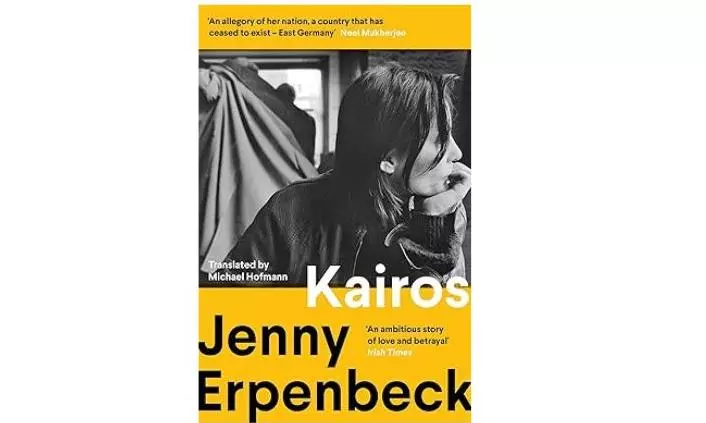Book Review | Twisted love before fall of Berlin Wall

“Will you come to my funeral?” is an opening line that quite effectively foreshadows what is to follow — a grim tale of love and betrayal that explores the many forms of loss.
Jenny Erpenbeck’s Kairos is set in the tumultuous era of World War II, and painted on the backdrop of conflict between the GDR (German Democratic Republic) of the Soviet bloc and FRG (Federal Republic of Germany), siding with the Western powers. This International Booker Prize-winning novel is a product and expression of a latent generational trauma of a people, including the author, that faced various kinds of cultural, psychological, as well as political atrocities one after the other. Hitler’s dictatorship of Nazi Germany, the collapse of the Third Reich, and the subsequent division of the nation, as well as the erection and fall of the Berlin Wall, gave successive generations their own insatiable voids.
Erpenbeck utilises multiple strands of time quite unconventionally as a narrative device, which is perhaps the most attractive of its features. The three varieties of time in question are the domains of “Chronos”, “Kairos”, and “Aion”. The world that runs in the background, rife with war, death, and poverty, does so undeterred. The people are subject to aionic time, removed from this universal time (chronos) and revolving around their selves. Hans and Katharina, the two lovers, on the other hand, present a case for kaironic time (a time when conditions are right for the accomplishment of a crucial action). A moment feels pregnant with emotion in love, and in loathing, but passes swiftly in indifference.
The periods before and after the collapse of the Berlin Wall also find a depiction in the two central characters. The massive age difference between Hans and Katharina dictates the two perspectives. The threads of time find themselves intertwined, coming alternatively to the forefront and advancing the tale.
Structurally, the book is as dense as can be, and possibly more so in the translation. A noticeable lack of quotation marks is one of the more prominent indications of the anxieties of the era that it embodies. The next is the frequent and atmospheric repetition of words and phrases. The paragraphs tend to condense into one another at the parts where tensions appear evident.
The novel evokes a sense of classicism with its many references to European artists and thinkers, specifically from East Germany. Inspiration, internalisation, meditation and projection of and through art is how the novel pictures dynamics of power. East vs West Germany, democracy vs socialism, and Hans vs Katharina, are all deliberated in terms of art, literature, music and philosophy.
In every way possible, Jenny Erpenbeck’s Kairos is a play in and around time that illustrates the cost of its shift. Utilising everything from factual history to dream sequences, the author makes a conscious attempt to make that weight felt.
“Can you bury what once was? No.” Heiner Müller rings through Kairos with “the simplicity of a funeral inscription.”
Ankit Rath is a DPhil candidate at the University of Oxford.
Kairos
By Jenny Erpenbeck
Granta
pp. 304; Rs 599
